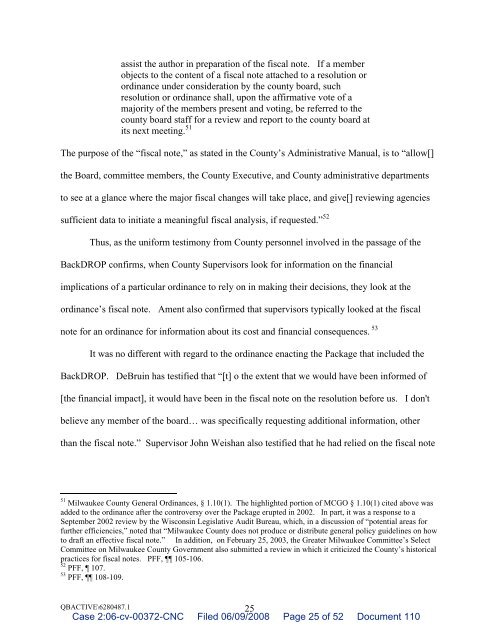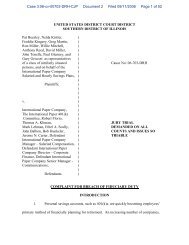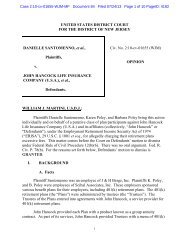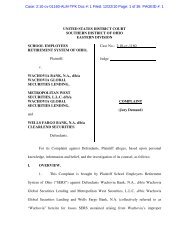eastern district of wisconsin milwaukee county, employee
eastern district of wisconsin milwaukee county, employee
eastern district of wisconsin milwaukee county, employee
Create successful ePaper yourself
Turn your PDF publications into a flip-book with our unique Google optimized e-Paper software.
assist the author in preparation <strong>of</strong> the fiscal note. If a member<br />
objects to the content <strong>of</strong> a fiscal note attached to a resolution or<br />
ordinance under consideration by the <strong>county</strong> board, such<br />
resolution or ordinance shall, upon the affirmative vote <strong>of</strong> a<br />
majority <strong>of</strong> the members present and voting, be referred to the<br />
<strong>county</strong> board staff for a review and report to the <strong>county</strong> board at<br />
its next meeting. 51<br />
The purpose <strong>of</strong> the “fiscal note,” as stated in the County’s Administrative Manual, is to “allow[]<br />
the Board, committee members, the County Executive, and County administrative departments<br />
to see at a glance where the major fiscal changes will take place, and give[] reviewing agencies<br />
sufficient data to initiate a meaningful fiscal analysis, if requested.” 52<br />
Thus, as the uniform testimony from County personnel involved in the passage <strong>of</strong> the<br />
BackDROP confirms, when County Supervisors look for information on the financial<br />
implications <strong>of</strong> a particular ordinance to rely on in making their decisions, they look at the<br />
ordinance’s fiscal note. Ament also confirmed that supervisors typically looked at the fiscal<br />
note for an ordinance for information about its cost and financial consequences. 53<br />
It was no different with regard to the ordinance enacting the Package that included the<br />
BackDROP. DeBruin has testified that “[t] o the extent that we would have been informed <strong>of</strong><br />
[the financial impact], it would have been in the fiscal note on the resolution before us. I don't<br />
believe any member <strong>of</strong> the board… was specifically requesting additional information, other<br />
than the fiscal note.” Supervisor John Weishan also testified that he had relied on the fiscal note<br />
51 Milwaukee County General Ordinances, § 1.10(1). The highlighted portion <strong>of</strong> MCGO § 1.10(1) cited above was<br />
added to the ordinance after the controversy over the Package erupted in 2002. In part, it was a response to a<br />
September 2002 review by the Wisconsin Legislative Audit Bureau, which, in a discussion <strong>of</strong> “potential areas for<br />
further efficiencies,” noted that “Milwaukee County does not produce or distribute general policy guidelines on how<br />
to draft an effective fiscal note.” In addition, on February 25, 2003, the Greater Milwaukee Committee’s Select<br />
Committee on Milwaukee County Government also submitted a review in which it criticized the County’s historical<br />
practices for fiscal notes. PFF, 105-106.<br />
52 PFF, 107.<br />
53 PFF, 108-109.<br />
QBACTIVE\6280487.1 25<br />
Case 2:06-cv-00372-CNC Filed 06/09/2008 Page 25 <strong>of</strong> 52 Document 110







